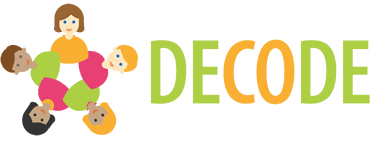Latest news
19.03.2025
Project launch “Developing competences for democratic culture for young learners through language education” (DECODE)

The aim of the project is the development of materials on competences for democratic culture (CDC) and guidelines for their implementation at the level of primary education, within the Reference Framework of Competences for Democratic Culture (Council of Europe, 2018). At their launch meeting, the project team members developed the first draft of a didactic template for the development of materials on CDC, established the phases for designing the materials on CDC for primary schools, and planned the agenda for the network meeting scheduled in June 2025.
The project team members are: Martina Kramar, project coordinator, Augsburg University, Germany; Manuela Svoboda, University of Rijeka, Croatia; Mai Trang Vu, Umeå University, Sweden; and Emina Jelešković, International
University of Sarajevo, Bosnia and Herzegovina.
The team members met with the ECML representative, Susanna Slivensky, Deputy Executive Director and Head of Programmes. The ECML consultant, Chantal Muller, also joined the expert meeting and provided her feedback on the meeting outputs.
The team discussed and agreed on the next steps of the project, focusing in particular on the activities planned for 2025.
Authors: Emina Jelešković, Mai Trang Vu
- ECML project website “Developing competences for democratic culture for young learners through language education” (2024-26) (available in English and German) : www.ecml.at/decode

